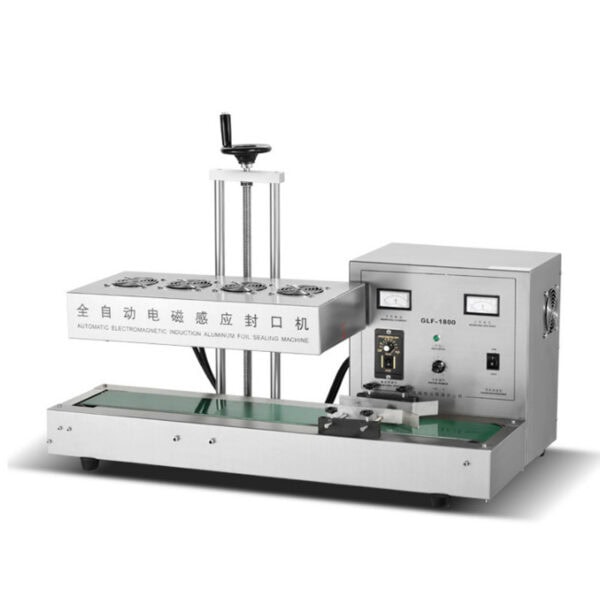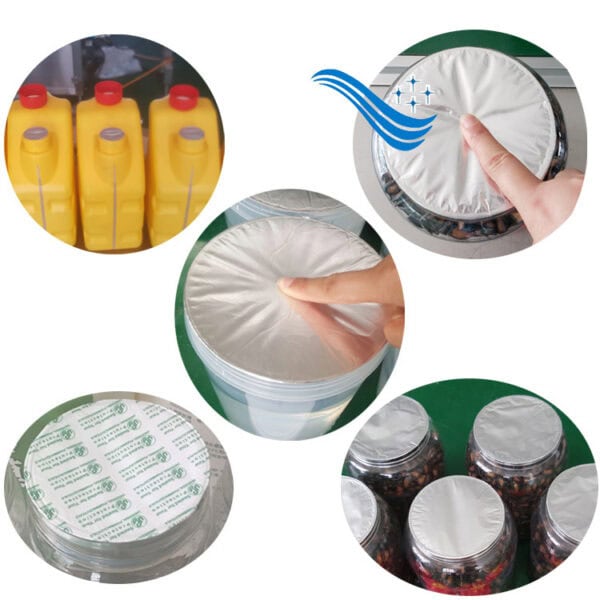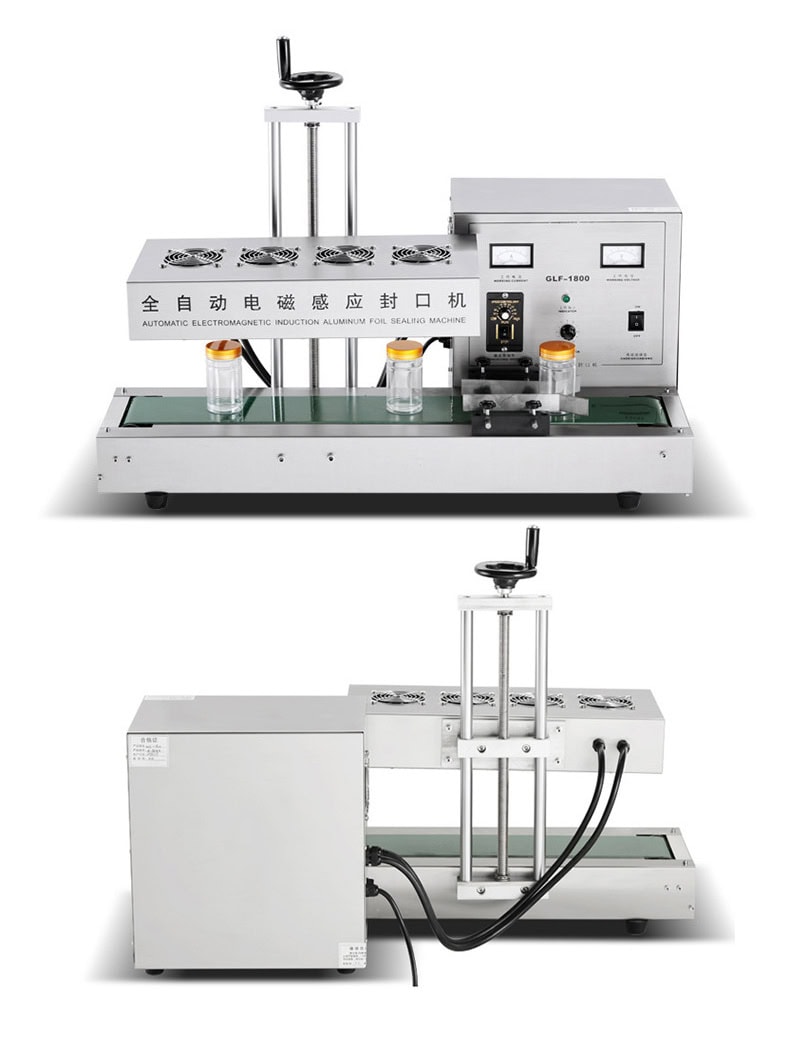Packaging inefficiencies can result in product contamination, compromised safety, and increased operational costs. Without effective sealing solutions, manufacturers may face product spoilage, customer dissatisfaction, and regulatory issues due to improper sealing. Induction sealing machines offer a cost-effective and reliable solution, providing airtight seals that ensure product integrity, extend shelf life, and enhance packaging efficiency.
Induction sealing machines are widely used across industries to create tamper-proof seals, ensuring safety, freshness, and product integrity. The top 5 applications include pharmaceuticals, food and beverages, cosmetics, chemicals, and consumer electronics.
Let’s explore the top applications of induction sealing machines, how they function, and why they are indispensable in various industries.

Pharmaceutical Industry
The pharmaceutical industry relies heavily on induction sealing machines to protect medications and other sensitive products. These machines provide a tamper-proof seal that guarantees the safety and effectiveness of pharmaceutical products, crucial for both consumer protection and regulatory compliance.
Key Benefits:
Induction sealing prevents contamination and ensures the integrity of products like liquid medications, powders, and pills. The sealing process also helps to extend the shelf life of pharmaceutical items by preventing air, moisture, and contaminants from entering the packaging.
Application Examples:
- Bottled Syrups: Liquid medications often require airtight seals to preserve their potency and prevent leakage.
- Vaccine Bottles: To maintain the efficacy of vaccines, induction sealing ensures that no contamination occurs before the product reaches consumers.
Food and Beverage Industry
Induction sealing is a vital process for ensuring the freshness and safety of food and beverages. By creating airtight seals, induction sealing machines help to preserve food products, prevent contamination, and improve shelf life, especially for products that require refrigeration or are sensitive to external factors.
Key Benefits:
Induction sealing guarantees the freshness of packaged food and beverages by preventing exposure to air and external contaminants. It is especially important for items that are prone to spoilage, such as juices, sauces, and dairy products.
Application Examples:
- Bottled Beverages: Soft drinks, juices, and flavored waters all benefit from induction seals that prevent leakage and spoilage.
- Canned Goods: Products like sauces, jams, and soups often use induction sealing to maintain their freshness and avoid contamination.

Cosmetics and Personal Care
In the cosmetics and personal care industry, induction sealing machines help maintain product quality by preventing tampering and ensuring the product stays fresh. Packaging for lotions, oils, and perfumes often involves induction seals to protect the contents and maintain their appeal.
Key Benefits:
Induction seals are ideal for cosmetic products because they create airtight seals that protect against oxidation, preventing color and fragrance degradation. This ensures that products remain effective and appealing to consumers.
Application Examples:
- Lotions and Creams: Bottles of lotions and creams are sealed with induction machines to preserve their ingredients and prevent contamination.
- Perfumes and Oils: Fragile products such as perfumes and essential oils are sealed tightly to maintain their scent and potency.
Chemical Industry
For the chemical industry, the use of induction sealing machines is essential for sealing hazardous and sensitive materials. These machines offer a reliable solution for preventing leaks, contamination, and exposure to potentially dangerous substances, which is critical for both safety and compliance with regulations.
Key Benefits:
Induction sealing ensures that hazardous chemicals, cleaning agents, and industrial liquids are securely sealed, protecting both workers and consumers. The seals also ensure the product’s quality is maintained throughout its storage and transportation.
Application Examples:
- Industrial Chemicals: Induction seals are used for bottles containing solvents, cleaning agents, and other industrial chemicals.
- Paints and Coatings: Containers of paints and coatings benefit from induction sealing to prevent spills and evaporation.

Consumer Electronics
Induction sealing machines are increasingly used in the consumer electronics industry, particularly for packaging electronic components and devices. These seals provide protection from dust, moisture, and other environmental factors that could compromise the quality and functionality of electronic products.
Key Benefits:
Induction sealing helps safeguard electronic products during storage and transportation. By creating airtight seals, these machines protect items such as batteries, chargers, and other sensitive electronics from exposure to moisture, dust, and contamination.
Application Examples:
- Battery Packaging: Induction sealing ensures that batteries remain secure and protected from environmental elements.
- Electronic Devices: Small consumer electronics such as headphones, chargers, and cameras often benefit from airtight packaging to prevent damage.
Conclusion
Induction sealing machines are indispensable across a range of industries, offering efficient, cost-effective solutions that ensure product safety, quality, and longevity. Whether in pharmaceuticals, food and beverage, cosmetics, chemicals, or electronics, these machines provide essential sealing capabilities that support quality control and consumer confidence.









